VALLEY FORGE: CRUCIBLE OF FREEDOM
PRAY THIS PRAYER ON JUNE 2 FOR PRESIDENT TRUMP
BILDERBERGS TO ADDRESS RUSSIA, CYBER THREATS, AND BREXIT VICTORY
TRUMP MOVES TO ENFORCE CLINTON-ERA IMMIGRATION PROVISION REGARDING SOCIAL...
UNPLANNED GOES FROM BLACKBALLED TO ON SCREENS IN CANADA
VALLEY FORGE: CRUCIBLE OF FREEDOM
The winter of 1777-1778 was one of the most important in our nation’s history, for that winter was the turning point of the American Revolution. During that winter the American Army faced as great an ordeal as any army in history.
Before the American Army moved into Valley Forge in December of 1777, it consisted of undisciplined men who had obtained few victories in their war with Britain, but the next spring they marched out as a well-disciplined band, committed more than ever to their General and the cause of liberty. They were now prepared to see victory through their efforts.
What was the ordeal this Army faced? How did such a change occur during the stay at Valley Forge? What was the cause behind this change?
As the American Army, under the command of George Washington, moved toward their wintering spot at Valley Forge, army troops had no clothes to cover their nakedness, nor blankets to lie on, nor tents to sleep under. Washington stated: “For the want of shoes their marches through frost and snow might be traced by the blood from their feet, and they were almost as often without provisions as with them.”1
Their situation even worsened after their arrival at Valley Forge on December 19th. Lack of food and provisions for his men was central to Washington’s appeals to Congress. In a letter to Congress dated December 23, 1777 Washington wrote, “Men are confined to hospitals, or in farmers’ houses for want of shoes. We have this day no less than two thousand eight hundred and ninety-nine men in camp unfit for duty, because they are barefoot and otherwise naked.”2
About one third of all his troops were unfit for service, and this number increased as winter progressed. “The unfortunate soldiers were in want of everything. They had neither coats, hats, shirts, nor shoes,” wrote Lafayette. “The men,” said Baron Von Steuben, “were literally naked, some of them in the fullest extent of the word.”3
Hunger was even a greater danger. “The army frequently remained whole days without provisions,” said Lafayette. “One soldier’s meal on a Thanksgiving Day declared by Congress was a ‘half a gill of rice and a tablespoonful of vinegar!’ In mid-February there was more than a week when the men received no provisions at all.”4
Dr. Waldo gives this description:
There comes a soldier, his bare feet are seen through his worn out shoes, his legs nearly naked from the tattered remains of an only pair of stockings; his breeches are not sufficient to cover his nakedness, his shirt hanging in strings, his hair dishevelled, his face meagre. His whole appearance pictures a person forsaken and discouraged. He comes and cries with an air of wretchedness and despair, “I am sick, my feet lame, my legs are sore, my body covered with this tormenting itch.”5
Due to this lack of food and clothing, hundreds of the troops fell sick. Many men’s “feet and legs froze till they became black, and it was often necessary to amputate them.”6 During most of January and February there were “constantly more than 4,000 soldiers who were incapacitated as a result of exposure, disease, and undernourishment.”7
And in the midst of all of this they persevered! Beyond this, the patient attitude with which they endured this misery was no less than supernatural. Washington wrote April 21, 1778 to a congressional delegate:
For, without arrogance or the smallest deviation from the truth, it may be said that no history now extant can furnish an instance of an army’s suffering such uncommon hardships as ours has done, and bearing them with the same patience and fortitude. Their submitting without a murmur is a proof of patience and obedience which in my opinion can scarce be paralleled.8
What could possibly have held this army together through this ordeal? Baron Von Steuben said no European army could have held together in such circumstances. How then could an inexperienced American Army stick together? Was it due to good discipline? “With regard to military discipline,” Von Steuben states, “no such thing existed.”9
Could it have been the financial reward they would receive? Not hardly, for their meager pay was already four to five months past due, and complete payment would never come. What was it then?
Most historians agree that the reason for their perseverance at Valley Forge can be attributed to their love of liberty and to their General George Washington, and his amazing quality of leadership. George Bancroft states that “love of country and attachment to their General sustained them under their unparalleled hardships; with any other leader, the army would have dissolved and vanished.”10
His character and encouragement inspired the army to follow his example. From the beginning he tirelessly traveled throughout the camp, his very presence bringing strength to the men. His heart was for his men as well as for his country. As Washington observed his naked and distressed soldiers, he said: “I feel superabundantly for them, and from my soul I pity those miseries which it is neither in my power to relieve or prevent.”11
Washington knew that the cause for which they fought was well worth any price — even the suffering at Valley Forge — for they purchased liberty, not only for them, but for the generations to come. While at Valley Forge, blood was not shed in battle, yet the American Army shed much blood. Henry Brown writes,
The blood that stained this ground did not rush forth in the joyous frenzy of the fight; it fell drop by drop from the heart of a suffering people. They who once encamped here in the snow fought not for conquest, not for power, not for glory, not for their country only, not for themselves alone. They served here for Posterity; they suffered here for the Human Race; they bore here the cross of all the peoples; they died here that freedom might be the heritage of all.12
It was Washington’s character that helped sustain the army, but what sustained Washington? This question could easily be answered by Washington’s troops or officers, for they knew his trust was completely in God. The army had frequently seen Washington order his men to attend church and to observe days of prayer and fasting and days of Thanksgiving.
Washington was also very instrumental in securing chaplains for the army. Rev. Henry Muhlenberg relates how General Washington “rode around among his army … and admonished each and every one to fear God, to put away the wickedness that has set in and become so general, and to practice the Christian virtues.”13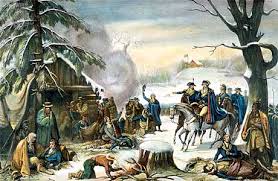
It was said of Washington, in a sketch written by an American gentleman in London in 1779 that “he regularly attends divine service in his tent every morning and evening, and seems very fervent in his prayers.”14 General Knox was one among many who gave testimony of Washington frequently visiting secluded groves to lay the cause of his bleeding country at the throne of grace.
A number of people have recorded the story of how a Tory Quaker, Isaac Potts, came upon Washington while he was on his knees in prayer in the woods. Benson J. Lossing relates that Potts later made the following remarks to his wife:
If there is anyone on this earth whom the Lord will listen to, it is George Washington; and I feel a presentiment that under such a commander there can be no doubt of our eventually establishing our independence, and that God in his providence has willed it so.15
On May 6, 1982, President Reagan remarked on this event in his National Day of Prayer Proclamation:
The most sublime picture in American history is of George Washington on his knees in the snow at Valley Forge. That image personifies a people who know that it is not enough to depend on our own courage and goodness; we must also seek help from God, our Father and Preserver.
In this most difficult of times, General Washington constantly relied upon God and trusted in Him for success. God was faithful to answer his prayers, and through Washington He eventually established our independence and secured the beginning of the most free and prosperous nation the world has ever seen.
How did God answer Washington’s prayer? One miracle occurred that winter which helped eliminate their near-starving situation. Bruce Lancaster relates the event as follows:
One foggy morning the soldiers noticed the Schuylkill River seemed to be boiling. The disturbance was caused by thousands and thousands of shad which were making their way upstream in an unusually early migration. With pitchforks and shovels, the men plunged into the water, throwing the fish onto the banks. Lee’s dragoons rode their horses into the stream to keep the shad from swimming on out of reach. Suddenly and wonderfully, there was plenty of food for the army.16
God’s providence can again be seen as Baron Von Steuben, a veteran Prussian soldier, came to Valley Forge on February 23 and offered his services to the American Army. No one could have been more valuable at the time, for he trained the men to move together as a well-disciplined army.
His rigorous drilling and training of the troops gave them confidence in themselves as soldiers, even as Washington had given them confidence as men. Not only had godly character and strength been forged and tempered within the army, but military skill had also been imparted to them at last.
Another providential event occurred that winter when France became an ally to America. This meant much needed French money and troops would begin to pour into the new nation. The Continental Congress acknowledged this as the hand of God as they declared a National Day of Thanksgiving on May 7.
In Washington’s orders issued at Valley Forge, May 5, 1778, he proclaimed:
It having pleased the Almighty Ruler of the Universe propitiously to defend the cause of the United American States, and finally by raising up a powerful friend among the Princes of the earth, to establish our Liberty and Independence upon a lasting foundation; it becomes us to set apart a day for gratefully acknowledging the Divine Goodness, and celebrating the event, which we owe to His benign interposition.17
The troops’ survival, the molding of a disciplined army, Washington’s amazing leadership, and all the miraculous occurrences during the winter at Valley Forge can only be attributed to Almighty God. George Washington said following all this: “The hand of Providence has been so conspicuous in all this, that he must be worse than an infidel, and more than wicked, that has not gratitude enough to acknowledge his obligation.”18
End Notes
1. George Bancroft, History of the United States, Vol. 6, Boston: Little, Brown, and Co., 1878, pp. 40-41.
2. Henry Armit Brown, “Centenial Oration of Valley Forge,” in The Christian History of the American Revolution, Consider and Ponder, Verna Hall, compiler, San Francisco: Foundation for American Christian Education, 1976, p. 61.
3. Ibid.
4. Bart McDowell, The Revolutionary War, Washington, D.C.: National Geographic Society, 1970, p. 128.
5. William Wilbur, The Making of George Washington, Alexandria, VA: Patriotic Education, Inc., 1973, p. 196.
6. Brown, in Consider and Ponder, p. 61.
7. Wilbur, p. 195.
8. Bancroft, p. 50.
9. McDowell, p. 131.
10. Bancroft, p. 41.
11. Bancroft, p. 42.
12. Brown, p. 66.
13. Ibid., p. 68.
14. William J. Johnson, George Washington the Christian, reprinted by Mott Media, Milford, MI., 1976, pp. 120-121.
15. Ibid., p. 104.
16. Bruce Lancaster, The American Revolution, Garden City, NY: Garden City Books, 1957, p. 42.
17. Johnson, p. 113.
18. Johnson, pp. 119-120. (Used with permission by The Freedom Foundation and Stephen McDowell)
Partner with Us
Intercessors for America is the trusted resource for millions of people across the United States committed to praying for our nation. If you have benefited from IFA's resources and community, please consider joining us as a monthly support partner. As a 501(c)3 organization, it's through your support that all this possible.


We use cookies to ensure that we give you the best experience on our website. If you continue to use this site we will assume that you are happy with it. Privacy Policy
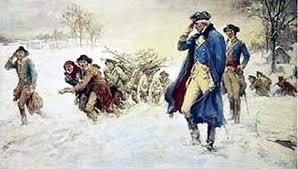
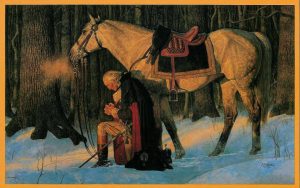
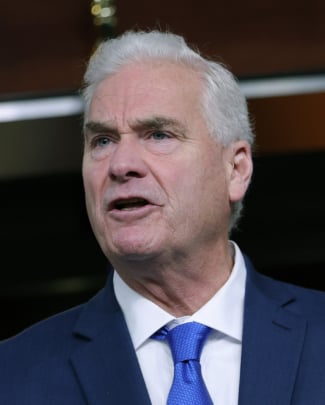
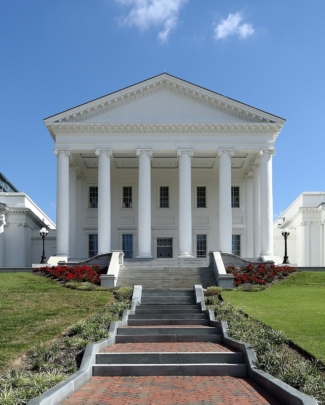
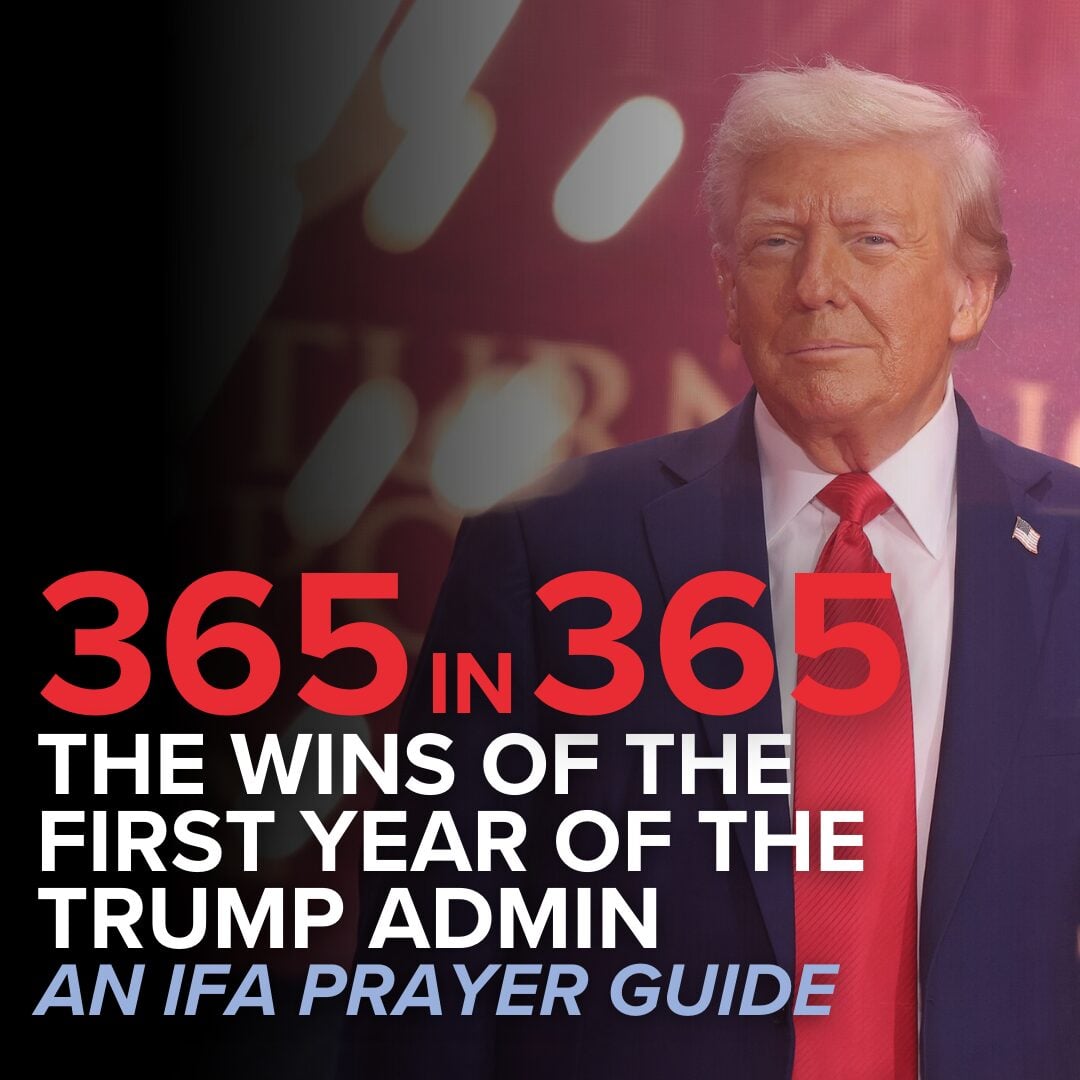

Comments
Father, may you turn the hearts and minds of the people back to You and Your plan for our nation and the world. Guide us to pray for Your ways to direct us on the right paths. We look forward to that time when Your will will be done on earth as it is done in Heaven when Your righteousness will fill the earth. This will happen when Jesus returns to the Mount of Olives. (Acts 1:9-11)(Zechariah 14:4)
Many people may be interested in a book “Miracles In American History–32 Amazing Stories of Answered Prayer.” It is by Susie Federer, Adapted from William J. Federer’s “American Minute.” When one can see the hand of God throughout our nation’s history, one is motivated to ask Him for even greater intervention. Perhaps a revival of Christian harvest is waiting for us.
Lord, may the people of the U.S. follow in the footsteps of George Washington for his courage, vision, and love of liberty. Lord, rain down on us that spirit!
Thank God for all leaders in all ages that beseech the Lord,
especially in troubled times.